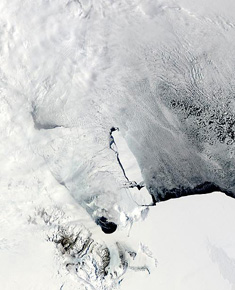World is at its hottest since prehistory
By Geoffrey Lean
18 December 2005
The world is now hotter than at any stage since prehistoric times, a top climatologist
announced last week. His startling conclusion comes as NASA reported that 2005 has been the
hottest year ever recorded.
Dr Michael Coughlan, head of the National Climate Centre at the Australian Government's
Bureau of Meteorology, said: "One probably has to go back into prehistoric times - and way
back in them - to be seeing these sorts of temperatures."
Top British climatologists agree privately but are cautious of saying so in public because,
naturally, no measurements were taken of temperatures then.
Dr Coughlan is supported by research that shows carbon dioxide levels in the air - the main
cause of global warming - are higher now than at any time in the past hundreds of thousands
of years.
Scientists in Bern, Switzerland, and Oregon in the United States analysed levels of the gas
in tiny air bubbles trapped in Antarctic ice during the past 650,000 years. They found
current levels were 27 per cent greater than the highest level over that period.
Professor Sir David King, the Government's Chief Scientist, has said the last time levels
of the gas were that high was 60 million years ago. And that was during a period of rapid
warming in the Palaeocene epoch, which caused a massive reduction in life on Earth.
Meanwhile, top climatological bodies around the world report that 2005 is vying with
1998 as the warmest year on record. NASA says it just beats it, while the Met Office says
it is just behind it, and the US government's National Climatic Data Centre says the two
years are statistically indistinguishable.
|

















 3 degrees: Chief scientist warns bigger rise in world's
temperature will put 400 million at risk
3 degrees: Chief scientist warns bigger rise in world's
temperature will put 400 million at risk